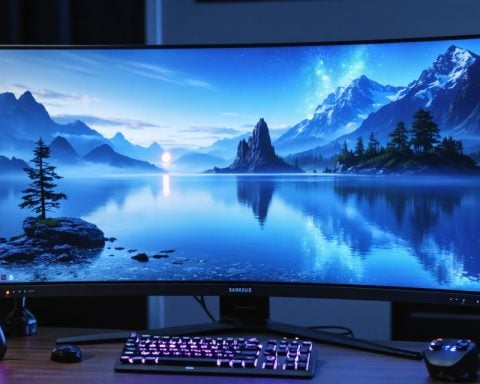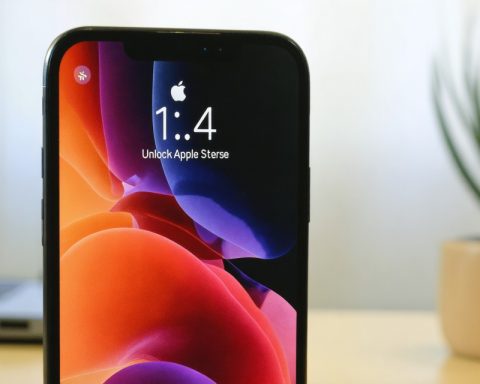- In Lot-et-Garonne, France, a school bans smartphones, offering students the option to leave devices at home or store them at the entrance, addressing digital distractions.
- British schools, like The Stanway School, observe a 20% decrease in student anxiety and depression after a 21-day smartphone detox, highlighting mental health benefits.
- The Fulham Boys School in London sees improved student engagement and reduced bullying after introducing basic phones, which limit use to calls and texts.
- In Hitchin, a grassroots movement led by Richard and Jessica Bowdler encourages families to withhold smartphones from children, fostering genuine connections across 80,000 families.
- Instances of reduced smartphone use suggest potential for nurturing present and less anxious younger generations as schools and families explore this paradigm shift.
A bold move in France’s Lot-et-Garonne heralds a compelling shift in educational environments. Starting next September, a local school forbids smartphone use entirely within its walls, presenting students with a choice: stow devices at the entrance or leave them at home. This decision reflects a growing trend as institutions grapple with ensuring students’ well-being amidst digital distractions.
Notably, British schools take even more radical steps. At The Stanway School in Colchester, students embraced a 21-day smartphone detox challenge. Remarkably, this brief hiatus from handheld screens led to a 20% reduction in anxiety and depression symptoms. The school principal shared his enthusiasm about the positive changes witnessed—students now exhibit enhanced focus and tranquility.
Among these transformations is Scarlett, a 13-year-old who bid farewell to anxiety attacks as her screen time halved. Choosing to limit social media, she enjoys a more balanced digital life. Meanwhile, at The Fulham Boys School in London, the introduction of basic phones—capable only of calls and texts—ushered in a renaissance of student engagement. Teachers observed a newfound attentiveness and mutual respect, while bullying incidents waned significantly.
In a grassroots approach in Hitchin, proactive parents like Richard and Jessica Bowdler rallied peers to forgo providing smartphones to their children, garnering backing from over 80,000 families. This collective decision fosters genuine connections, offering kids a chance to revel in life sans social media scrutiny.
These stories suggest a powerful revelation: stepping back from smartphones might just be the key to nurturing more present, less anxious generations. As more schools and families challenge the norm, we are left pondering the profound impact of unplugging, even if just a little.
The Surprising Benefits of a Screen-Free School Environment: A Model for Mental Well-being
Exploring the Impact of Smartphone Bans in Schools
The recent decision by a school in France’s Lot-et-Garonne to ban smartphones within its walls is an extension of a broader educational shift aimed at enhancing student well-being by minimizing digital distractions. This move is part of a growing trend, observed in various schools across Europe, acknowledging the potential mental health benefits of limiting screen time.
Real-World Use Cases & Success Stories
In British schools like The Stanway School in Colchester, a “21-day smartphone detox challenge” resulted in a striking 20% reduction in anxiety and depression symptoms among students. This experience was transformative for students like Scarlett, who, after reducing her screen time, experienced fewer anxiety attacks and found a more balanced digital life.
In another testament to this approach, schools such as The Fulham Boys School in London have introduced basic phones limited to calls and texts, fostering enhanced student engagement and a significant decrease in bullying incidents. The anecdotal evidence suggests such measures can result in improved focus and mutual respect among students.
Potential Benefits and Drawbacks
Pros:
1. Mental Health Improvement: Reduced anxiety and depression symptoms as students disconnect and engage more with their surroundings.
2. Enhanced Focus: A noticeable increase in student attentiveness and participation in class.
3. Decreased Bullying: Reduction in digital harassment incidents due to the limited functionality of devices.
4. Stronger Social Connections: Encourages face-to-face interactions, improving social skills and relationships.
Cons:
1. Lack of Immediate Communication: Emergencies might prompt concerns over restricted access to immediate contact with parents.
2. Resistance to Change: Some students and parents may initially resist the restriction, fearing loss of connectivity or essential digital tools.
3. Digital Literacy Gap: Potential for students to fall behind in developing digital skills considered essential in modern environments.
Industry Trends & Predictions
The movement to limit smartphone access in schools is part of a larger narrative that prioritizes mental health and well-being. As schools continue to adopt such measures, experts predict a gradual shift towards more health-focused educational environments. The industry is also seeing an increase in the popularity of basic phones and parental controls, suggesting growing concern over children’s screen time.
Security & Sustainability
Restricting smartphone use in schools can also have implications on digital security. By reducing the number of active devices, schools can lower the risk of data breaches and cyberbullying. Furthermore, limiting screen time fosters sustainability by reducing energy consumption associated with constant device usage.
Actionable Recommendations for Schools and Parents
1. Develop Alternative Communication Plans: Schools should implement phone-free zones while ensuring emergency communication channels are accessible.
2. Educate on Digital Use: Introduce curriculum components focused on responsible digital usage and screen time management.
3. Start Gradually: Instead of a complete ban, schools can initiate “no-phone zones” and progressively build towards larger phone-free areas.
4. Encourage Parental Involvement: Engage parents through workshops or discussions about the benefits of reduced screen time and alternative activities.
By adopting a holistic approach that combines education, support, and gradual implementation, both schools and families can successfully navigate the challenges of smartphone usage, ultimately fostering a healthier and more balanced environment for students.
For further insights into promoting healthier screen habits, visit Common Sense Media.

















